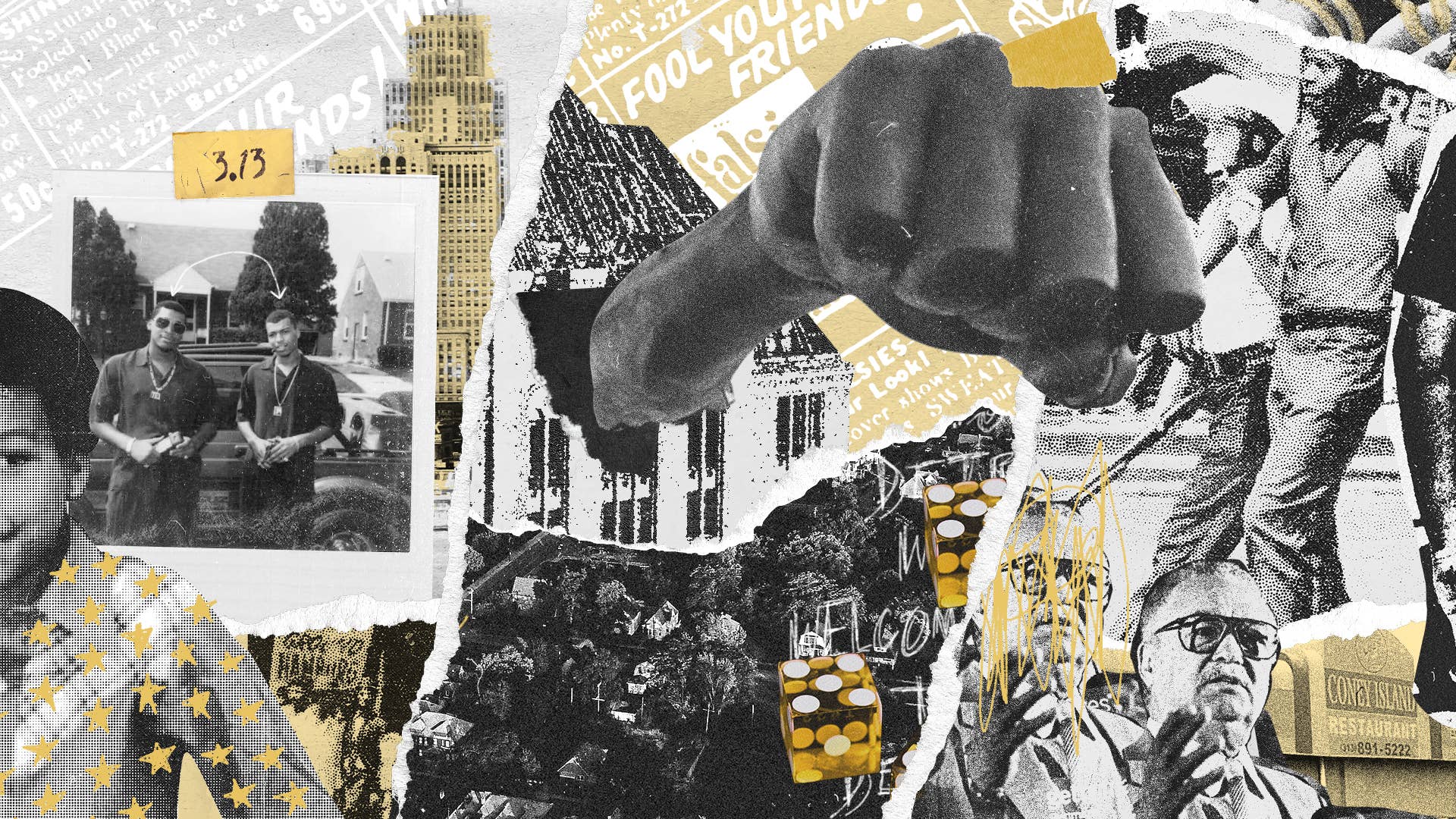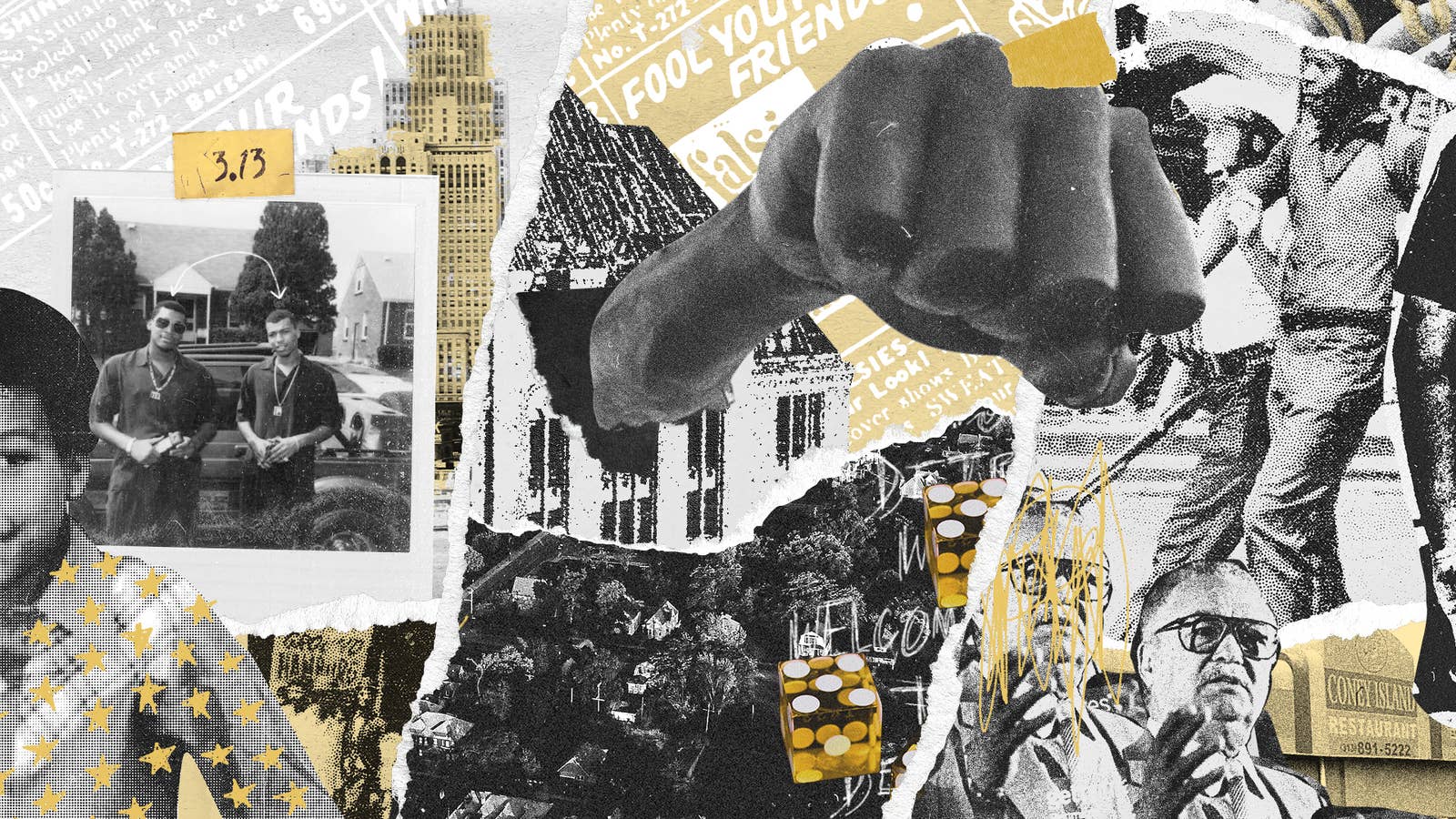
On the early morning of July 23, 1967, Detroit police raided a welcome-home party for two young Black Vietnam soldiers. At around 3:30 am, a handful of cops attempted to arrest the more than 80 patrons gathering on the corner of 12th Street and Claremount Avenue but needed reinforcements to take away the large number of revelers. As police on the scene awaited backup, an even larger crowd gathered to protest the attempted arrests. When the cops left, some of the angry demonstrators broke into a nearby store, which led to chaos and violence that lasted five days. When the dust finally settled, 43 people were left dead and 7,000 were arrested.
A year later, Demetrius “Big Meech” Flenory was born in Cleveland, Ohio. His parents, Charles and Lucille Flenory, would eventually move to Detroit where his younger brother, Terry, was born in 1972. While Big Meech and Terry weren’t of age to understand what caused the riots, the events of July 1967 would play a pivotal role in their lives and the rise of their notorious narcotics trafficking empire, Black Mafia Family (BMF).
The Detroit riots of 1967 were a watershed moment in the city’s history and for America’s civil rights movements. In response to the unrest, then Michigan Governor George Romney sent in the National Guard and asked President Lyndon B. Johnson to provide federal troops. In the aftermath, Johnson ordered a commission to study the causes of the riot, as it wasn’t an isolated incident in an America rife with racial animus.

The Kerner Commission made observations that were already known to Black Detroiters but were now backed by evidence. Among the findings was that Detroit school districts were spending $500 less per student than what was being spent in suburban school districts, and that about half of Detroit’s youth dropped out before graduating. This neglect would work in tandem with other political forces to create an environment rich for exploitation.
The cultural and political conditions that fed criminal enterprise in Detroit is explored in the STARZ scripted series, BMF. Set in the 1980s and inspired by the real-life machinations of Big Meech and his brother Terry, the series gives viewers a micro view into how Detroit’s policies affected the Flenory household and fueled their drug-dealing careers. In an opening scene from the premiere episode, Terry (played by spoken word artist turned actor, Da’Vinchi) is sitting in a dilapidated classroom with an overwhelmed white teacher. While attempting to motivate the students about their future goals, the teacher receives pushback from the pupils who are confronted with their daily realities of poverty in the Ronald Reagan era and explain that planning for the future is a privilege they don’t have.
In response to the findings of the Kerner Commission report, Detroit community organizations like “FOCUS: Hope” emerged to provide needed services, such as job training, but did little to stem the white flight from the city that drained its human resources. In the decade following the riot, Detroit lost more than 100,000 jobs and the white population would shrink by almost 400,000.
Detroit is a city driven by the auto industry, so the oil crisis of the 70s (caused by an oil embargo by OPEC Nations in retaliation for U.S. aid to Israel) had a particularly harsh impact on residents. A pivot to making smaller, more fuel-efficient cars in auto manufacturing drove Detroit’s automakers to adjust. There was an almost 30% drop in production from 1973 to 1975, which meant a loss of jobs.
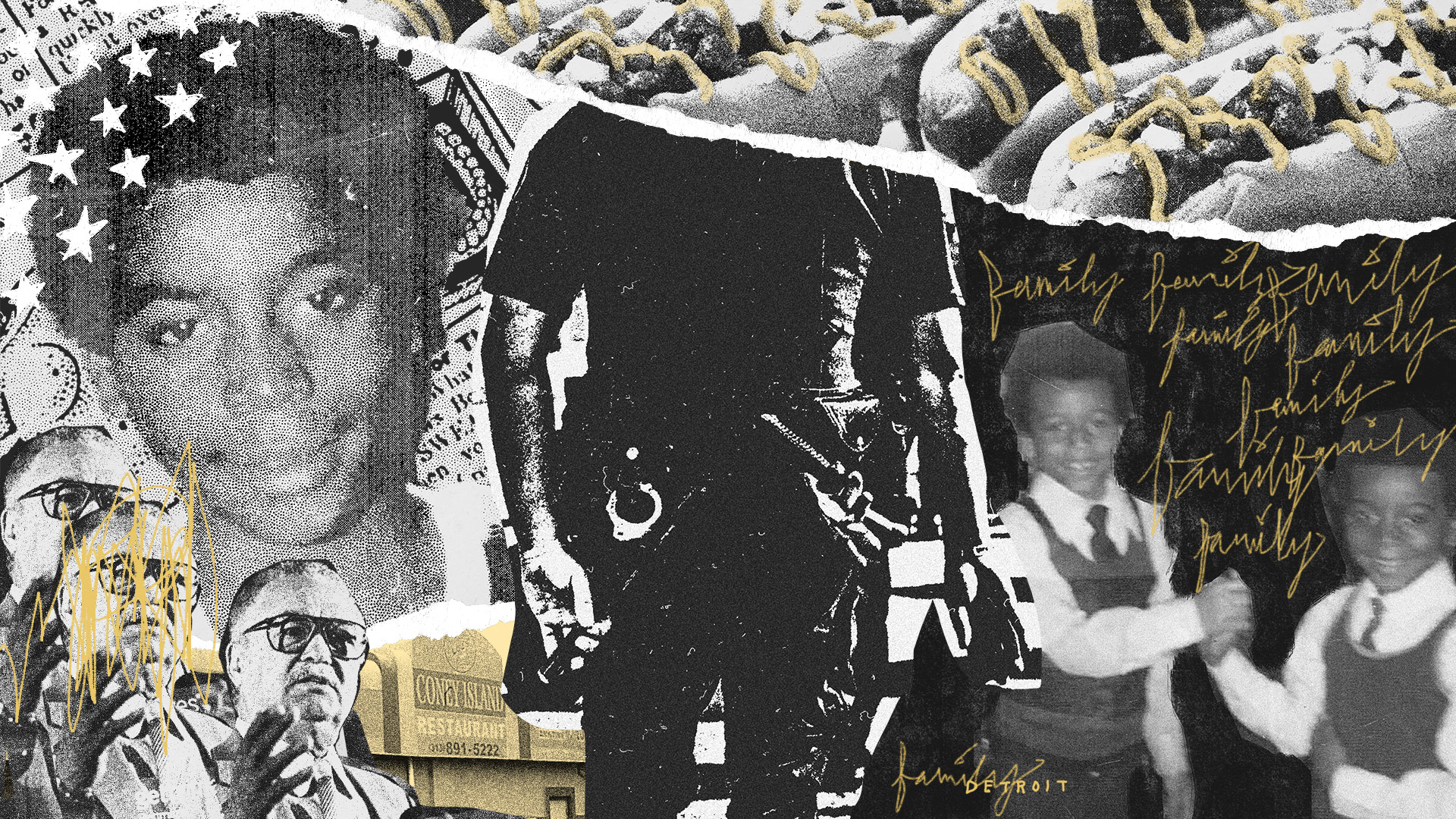
Lack of employment meant resorting to other means to obtain capital. In the BMF series, Charles Flenory (played by Russell Hornsby) is an autoworker attempting to adjust to the lean times and his wife, Lucille (Michole Briana White) tells him their financial needs are not being met despite their efforts. In an all too familiar scenario, their son Meech (played by Big Meech’s real-life son, Demetrius Jr.) offers to help out with his money from selling drugs. But his father rebukes the ill-gotten gains and would rather risk losing their home than take the money his son earned hustling.
Countless Detroit families were faced with similar tough choices. Ultimately, these mounting challenges opened the door for a charismatic, no-nonsense politician to take the wheel and attempt to get the city back on track. In 1973, Coleman Young campaigned to be the Motor City’s first Black mayor.
Young checked off all the boxes of a successful leader and political figure. Born in Alabama, he was drafted into the Army and transferred into the Air Force where he became a Tuskegee Airman. But his reputation for being subversive got him kicked out of the elite pilot program. In 1964, Young won the election to the Michigan State senate and in 1974 won Detroit’s mayoral race by fewer than 20,000 votes.
Young ran on the promise to take on a predominantly white police force and was not shy about confronting white racists. But he also took aim at crime in the city and focused on bringing businesses to Detroit. He bulldozed the Poletown neighborhood, composed of Blacks and immigrants, to make way for a new General Motors factory. While many took the offer of $13,000 and moving expenses to relocate, some residents resisted. Coleman also gained voter approval for three casinos that he felt would be job creators, but they did little to attract patrons outside of Michigan.
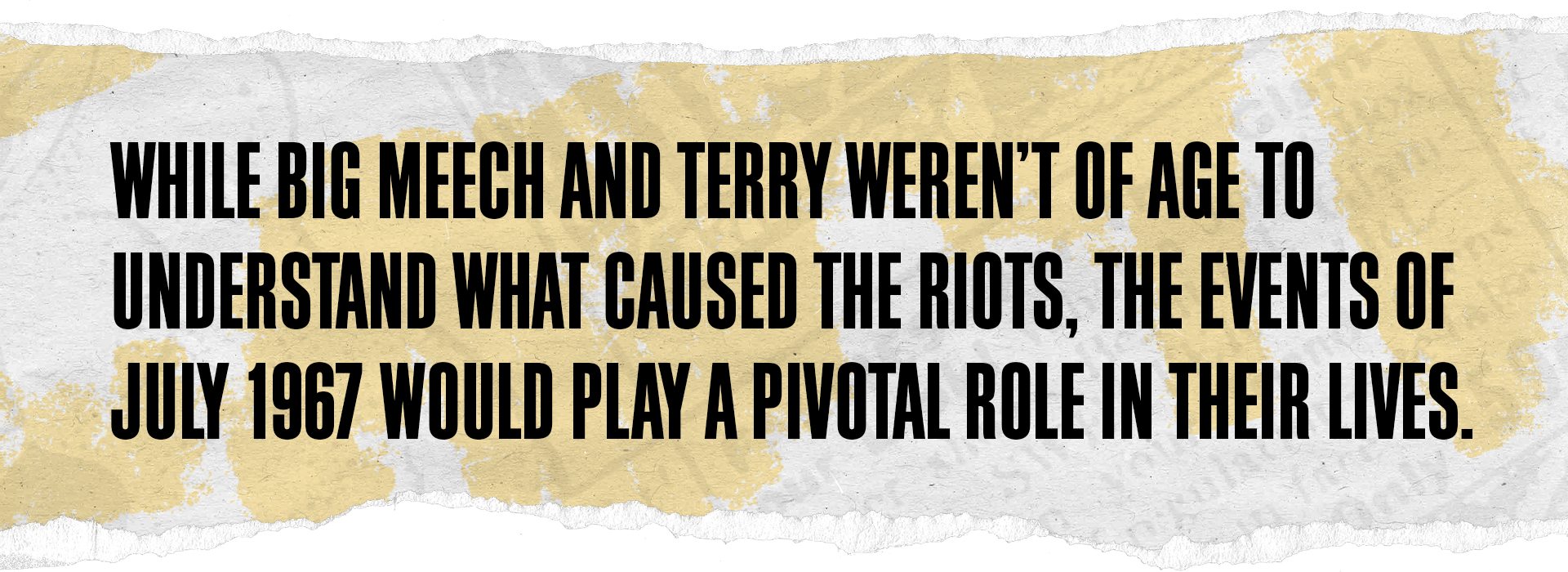
Lack of jobs and opportunity is fertile ground for both illegal activity and coping mechanisms, with drugs being the common thread between them. This reality is unpacked in BMF in various ways. Viewers are subtly shown how drug use proliferated amongst auto workers looking to escape the stresses of their industry and that young men with promising academic futures, like a teenaged Terry, are drawn into the drug trade because they have adult responsibilities, like unplanned children.
In the 1970s heroin exploded in America’s cities and Black drug dealers who served as street-level ambassadors for the mob, were now establishing their own criminal enterprises. Flashy gangs like the Errol Flynn’s attracted new recruits with their style and bravado, while in the early 80s YBI (Young Boys Inc.) fueled the heroin trade. The method to their madness was in their name, as they employed children to sell drugs who would only be charged as juveniles if caught. Both organizations were early precursors and inspirations for the Flenory brothers.
Just like their prohibition era predecessors, Detroit’s drug dealers filled in the financial void left by rising unemployment, raking in millions of dollars for anyone who managed to stay alive and out of prison. When crack cocaine replaced heroin as the drug of choice, rival gangs appeared, each determined to get their cut of the booming market. This led to turf wars that pushed Detroit’s murder rate to some of the highest in the country at the time.
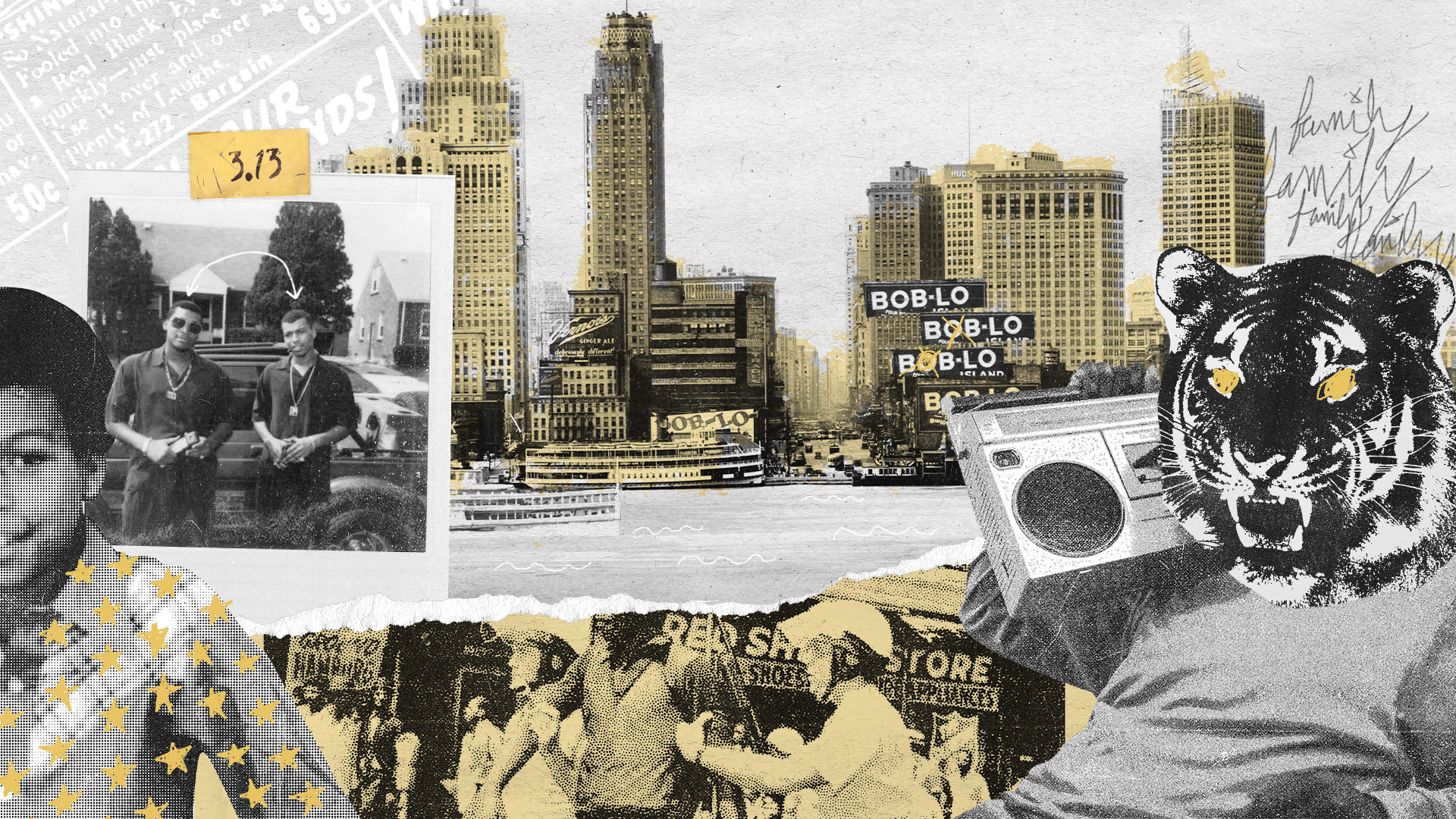
One of Coleman Young’s first missions as mayor was to take on the YBI. He ordered a raid on the Brewster housing project believed to be a base of operations for the gang. However, Young’s position on anti-crime was compromised by some of his familial connections.
Young came from a family of hustlers. His father was a barber who also supplied bootleg whiskey from Canada to local judges in Detroit. Fittingly, Mayor Young owned a bar, Coleman Young’s Lounge and Bar-B-Q, on Livernois Avenue. His brother-in-law, Willie Volsan, was caught selling drugs to an informant on the premises and this put Young on the FBI’s radar. Furthermore, Volsan’s daughter, Coleman’s niece Cathy, dated a drug dealer named Johnny Curry, who, along with his twin brother, Leonard, headed one of the biggest drug operations in Detroit.
When Cathy became pregnant with Johnny’s baby, the mayor threw their baby shower in his home, Manoogian Mansion. Cathy and Johnny eventually married in 1985, so Young created a 24-hour security detail called the Black Bag Squad to protect her.
Like most drug dealers, Curry would eventually be arrested and sent to prison in 1987, thanks in part to information provided by Richard Wershe Jr, aka “White Boy Rick,” who’ll be played by Detroit rap legend Eminem in the BMF series. After Curry’s arrest, Cathy and White Boy Rick began dating before he was also arrested and later helped the FBI to expose corruption in the Detroit police department.
However, during Young’s 20 years in office, there were some bright moments for the city. Black Detroiters benefited from civic scholarships presented through the Coleman Young Foundation, which assisted in college attendance. Additionally, The Renaissance Center, an ambitious multi-phase development project, employed 7,000 construction workers in Detroit. A hotel tower was among the project’s seven skyscrapers and was the tallest hotel in the world when it opened in 1977. Today, it still ranks as the tallest building in Michigan. Phase II of the project added two additional office towers in 1981. Downtown Detroit became a hub of activity that provided recreation for young Detroiters like the Flenorys and their associates.
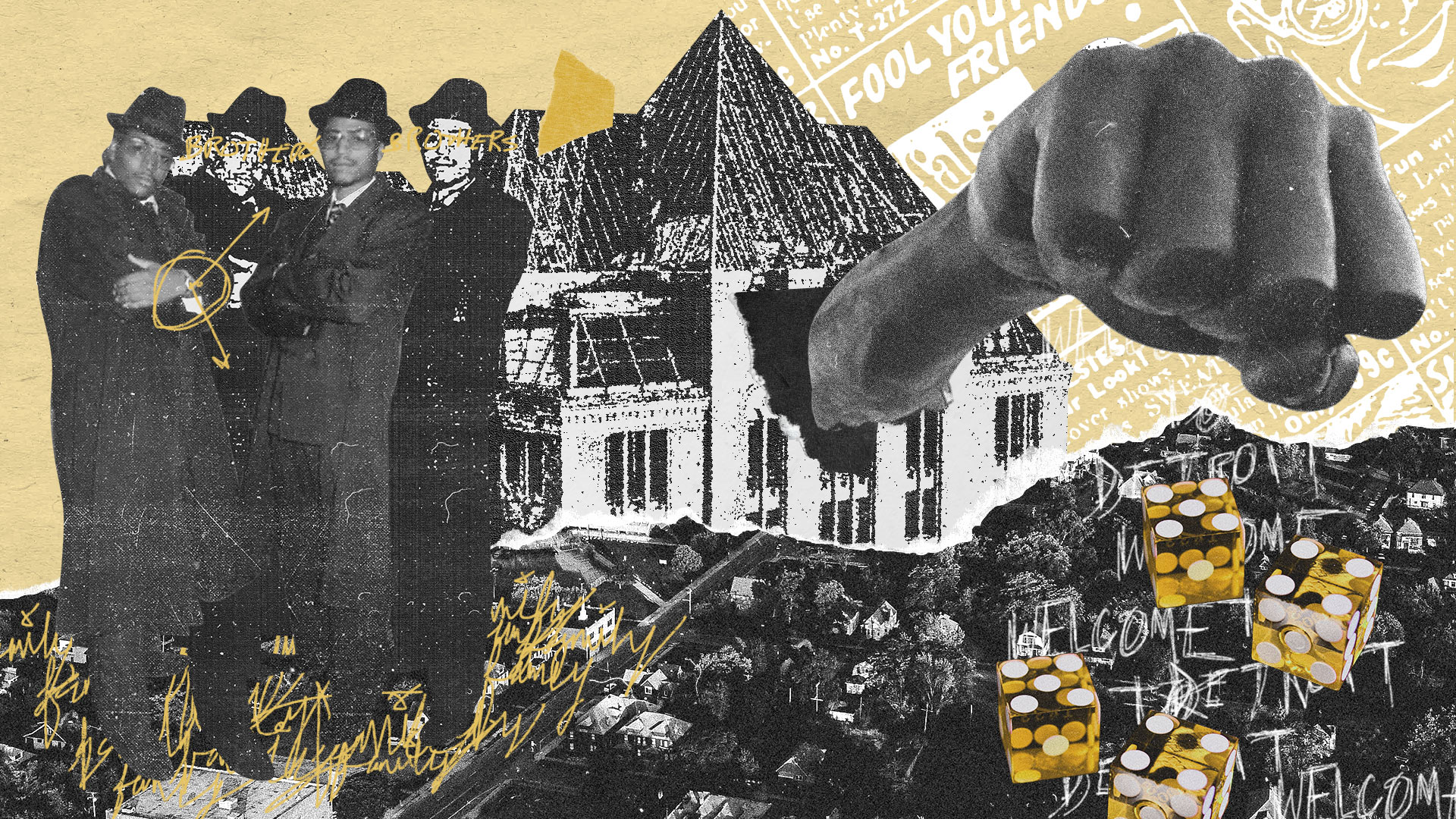
All of this complicated, messy and compelling history has led to the STARZ original series, BMF, which chronicles the rise of the Flenory brothers in the underworld of Detroit. In the late 1980s, Big Meech and Terry established the 50 Boyz gang (they sold their crack cocaine in $50 packs) while in high school. Mentored by their boss, Edrick “E.D.” Boyd, who was schooled by former Young Boys Incorporated lieutenant Norman “Sneed” Johnson, the brothers evolved from corner boys to kingpins. Their legend grew even bigger when their budding empire took on the BMF name.
While blurring the lines of fact and fiction, the STARZ series still captures the tenacious and uncompromising tactics the Flenorys employed to achieve their dreams. Like the politicians that ran the city, they were not shy about using corrupt police officers to bend the rules in their favor or to gain the upper hand in negotiations with rival crews like the 12th Street gang, ironically named after the area where the ’67 riots sparked.
Over more than a decade the Flenory brothers expanded their enterprise of cocaine distribution and money laundering to over a dozen states, including Florida, Georgia, Kentucky, and Louisiana. By the mid-2000s BMF boasted more than 500 members at its height and the DEA claimed they moved more than 2,500 kilograms of cocaine a month throughout the United States, but it all started on the streets of the Motor City.
The City of Detroit’s motto is “Speramus Meliora and Resurget Cineribus,” which means, “We hope for better things; it shall arise from its ashes.” In the wake of white flight, mass unemployment and crime, the Flenory brothers didn’t just rise from the ashes of Detroit’s suffering, they used the opaque dust of governmental neglect to make diamonds.
To see it all unfold, watch the premiere of BMF at 9PM, Sunday, September 26 on Starz.

